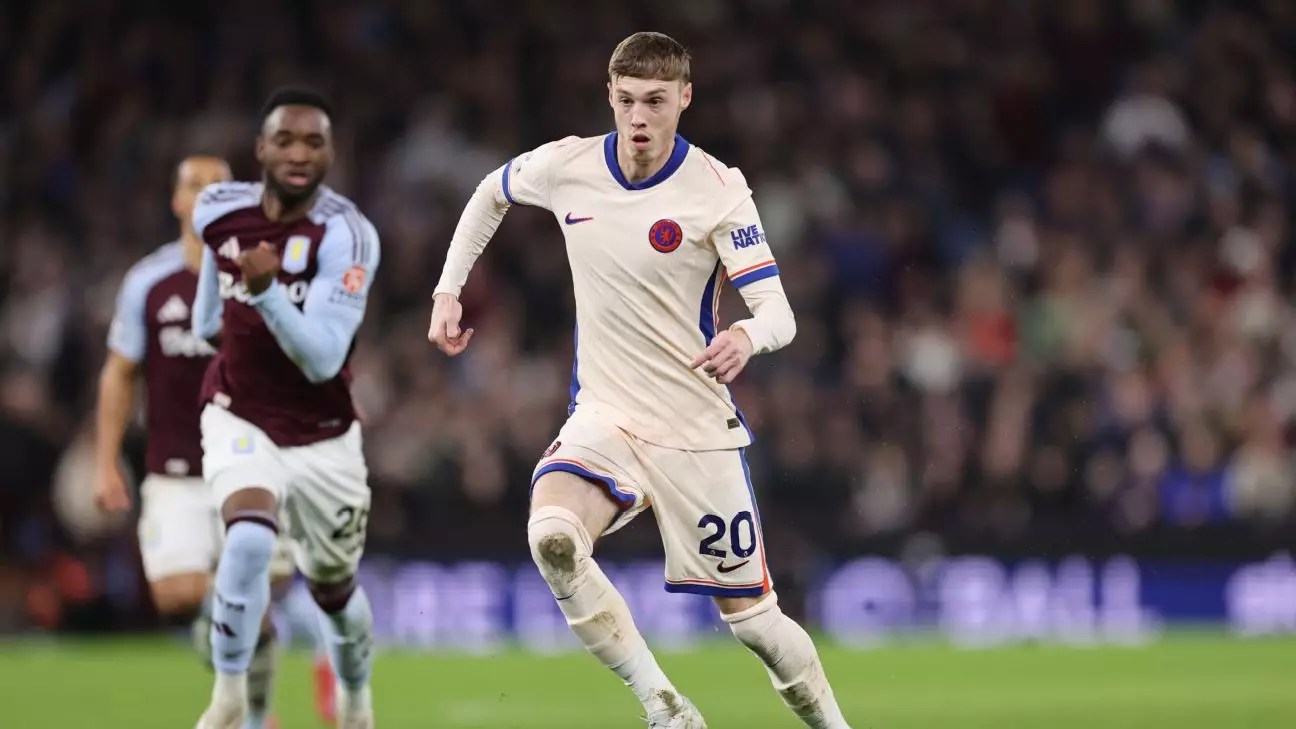Chelsea FC is navigating a tumultuous period in their Premier League campaign, most recently marked by a disappointing 2-1 loss to Aston Villa that saw them drop to seventh place in the league standings. The defeat raised questions about the team’s overall performance and effectiveness, especially in attacking situations, fueling criticism toward specific players, most notably young midfielder Cole Palmer. With the team navigating a rough patch, the reliance on Palmer appears increasingly pronounced, making it necessary to assess not just individual capabilities, but the dynamics of the entire team.
Enzo Maresca, Chelsea’s manager, has openly acknowledged the weight of expectations bearing down on Palmer. The 22-year-old midfielder was previously a star performer for the club, showcasing remarkable talent with 14 goals and six assists in just 26 league appearances. However, over the past six matches, Palmer has failed to find the back of the net, a trend exacerbated by perceived moments of frustration on the pitch. Fans and commentators alike have pointed to his body language during games, interpreting it as a sign of discontent or performance anxiety.
Maresca, however, refutes these assertions, insisting that Palmer is merely experiencing a natural dip in form typical for any player over the course of a season. “Cole is a human being,” Maresca clarified, stressing that fluctuations in performance are to be expected. What is concerning, however, is Chelsea’s apparent over-reliance on Palmer and the pressure it places on his shoulders. Maresca has emphasized the need for the entire team to share the burden of performance, shifting the narrative from highlighting individual failures to addressing collective responsibility.
What remains crucial for Chelsea is the necessity for broader team engagement, especially in front of goal. The club’s blame shouldn’t fall squarely on Palmer for missed opportunities in pivotal matches. Maresca pointed out that it is essential for teammates to maintain a supportive environment, underlining that frustration should be mutual rather than directed. “There are teammates that can be frustrated with the chances we miss,” he stated, suggesting that the problem of inefficacy in crucial moments extends beyond just one player.
This collective dynamic points to systemic issues within the Chelsea ranks. For a team fighting for optimal performance in a competitive league, the inability to convert scoring chances not only impacts individual morale but creates a ripple effect that can affect overall team cohesion and confidence. To remedy this situation, players need to engage more effectively in offensively-charged situations and support one another as they work through challenges together.
As they prepare for their upcoming match against bottom-placed Southampton, the pressure is on Chelsea to restore their offensive prowess. When asked about Palmer’s path back to form, Maresca’s direction is clear: “Just continue working in the way he is working.” While this approach emphasizes the importance of diligence, it raises the question of whether mere persistence is enough when external factors, such as expectations and team atmosphere, heavily influence performance.
For Chelsea to emerge from their current crisis, it is pertinent that they refocus on team-oriented strategies. With Trevoh Chalobah sidelined for a short period, the team must also work to adapt their defensive setup to maintain balance across the pitch. Furthermore, as Maresca retains confidence in goalkeeper Filip Jørgensen despite recent mistakes, it speaks to a philosophy of patience amidst adversity—an essential quality for a team that needs to learn from missteps rather than shun those who falter.
A Call for Unity
Ultimately, maintaining an understanding that both individual and collective ups and downs are part of the sport can aid Chelsea in redefining their approach. As they face challenging opponents and navigate the pressures of high expectations, only through unity and shared responsibility can they hope to turn their fortunes around. For Cole Palmer, a promising talent, it is vital to cultivate a robust support network within the team that encourages resilience and mental fortitude, ultimately leading to the cohesive performance needed to uplift Chelsea in the current Premier League landscape.


Leave a Reply